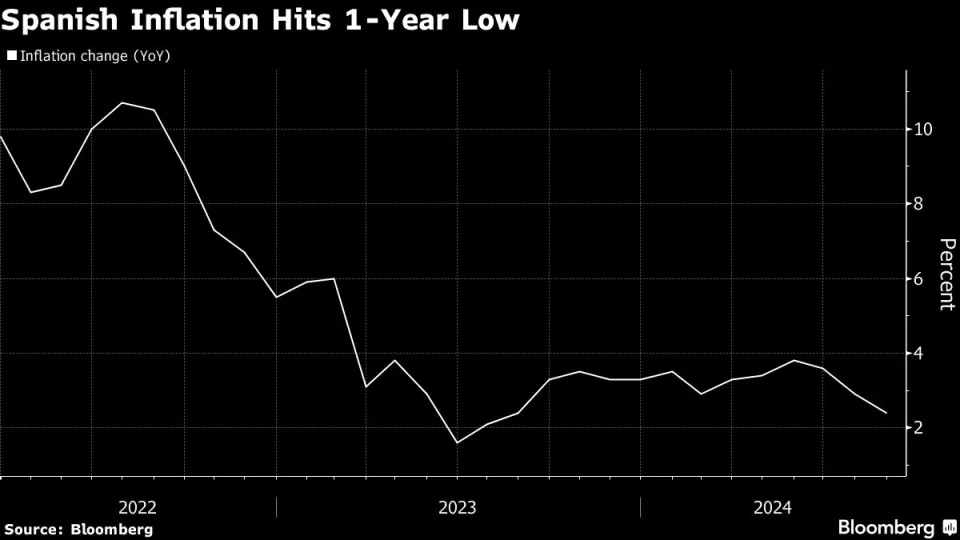(Bloomberg) — Inflation in Spain has dropped to its lowest level in a year, a trend that is expected to be reflected throughout the euro zone. This development may enable the European Central Bank to continue its policy of lowering interest rates.
According to data released on Thursday by the national statistics agency, consumer prices rose by 2.4% compared to the same period last year. This figure is slightly below the 2.5% median estimate from a Bloomberg survey of economists.
This marks the third consecutive month of slowing inflation, driven primarily by reduced costs for fuel, food, and non-alcoholic beverages. An index that excludes energy and some food prices, which provides a measure of underlying inflation pressures, also eased to 2.7%.
Bloomberg Economics comments…
“Spanish inflation dropped further in August and is likely to hit the European Central Bank’s 2% target next month. However, this decline may be short-lived. Energy base effects, which have contributed significantly to the recent decrease in price gains, are expected to reverse direction later this year. We anticipate headline inflation to gradually rise to just below 3% by the end of the year, also influenced by the reversal of previous tax cuts.”
Spain’s data align with expectations of a widespread decline in inflation across the 20-nation euro area. Data scheduled for release later on Thursday will indicate whether this trend holds true for Germany, the region’s largest economy. Reports from France, Italy, and the euro area as a whole are due on Friday, with estimates suggesting that prices rose by 2.2% this month, down from 2.6% in July.
For the European Central Bank (ECB), the recent data strengthens the argument for another reduction in borrowing costs scheduled for September 12—a move that policymakers have indicated is probable and that investors have already factored into their expectations. Markets are anticipating one or two additional cuts this year following the September decision.
In Spain, the government has been gradually withdrawing support measures introduced to counteract the inflation spike triggered by Russia’s invasion of Ukraine. However, some initiatives, such as free public transportation for commuters, remain in place.
Overall, the Spanish economy is performing well, with record tourism and robust exports driving one of the fastest growth rates in Europe. Job creation is also strong, with unemployment near its lowest level in approximately 17 years.
Despite these positive indicators, fiscal policy is presenting a challenge. The government’s failure to pass a new budget is impeding its economic objectives, forcing reliance on last year’s spending plan until political disagreements are resolved.
